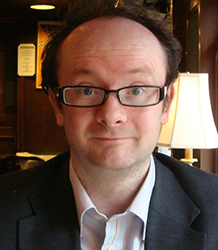The main SHWEP podcast is a roughly-chronological historical narrative: it starts way-back-when and moves forward from there. However, Episodes 0-4 are introductory materials. If you are a newcomer to the podcast, Episode Zero introduces the concept behind it. If you are a newcomer to the history of western esotericism, check out Episodes One, Two and Three, which provide a lot of useful background. If you want to skip the intro and start exploring the nitty-gritty of the history of western esotericism, start with Episode Four and go from there.
If you want to explore further, be sure to check out the SHWEP Oddcast, which features interviews with specialists that have not yet been integrated into the main SHWEP chronology.

















